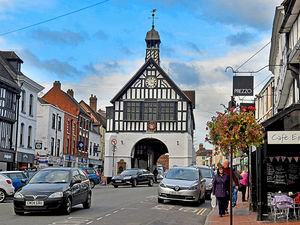Twitter ye not
Two very different people hit the headlines this week - but both have one thing in common: the internet.

 Two very different people hit the headlines this week - but both have one thing in common: the internet, writes Andrew Owen.
Two very different people hit the headlines this week - but both have one thing in common: the internet, writes Andrew Owen.
On Thursday, Shrewsbury's Michael Hughes found himself in court after attempting to drive from Shrewsbury to Telford in 10 minutes. In doing so he hit speeds of more than 100mph on the A5 at Emstrey and the M54 at Junction Six.
How do we know this? Simple: the 18-year-old's drive was filmed and put on YouTube.
Then, magistrate Professor Steve Molyneux found himself on the front page of the Shropshire Star, and as the lead story on this very website, for posting details of the court cases he was dealing with on the Twitter social networking site.
A fellow magistrate discovered the Twitterings and made a complaint.
Prof Molyneux resigned, even though he said he never divulged any details that were not already in the public domain and had therefore done nothing wrong.
Afterwards he said he was simply trying to use the internet to explain the role of the magistrate. "I hoped that by Tweeting people would see that justice was being done," he added.
"I believe that everyone overreacted."
The interesting fact is that both cases simply wouldn't have happened just a few years ago.
As Mr Phil Mason, who prosecuted Michael Hughes for careless driving, put it in court: "Mr Hughes was caught because of the modern age."
This is true. If YouTube hadn't existed would Hughes have wound up in court? Indeed, would he have attempted the drive in the first place?
And would Prof Molyneux still be dealing with magistrates court cases, as he had done for 16 years, if Twitter hadn't been invented? Probably.
It just goes to show that for some people the benefits of new technology can be outweighed by unintended consequences.





